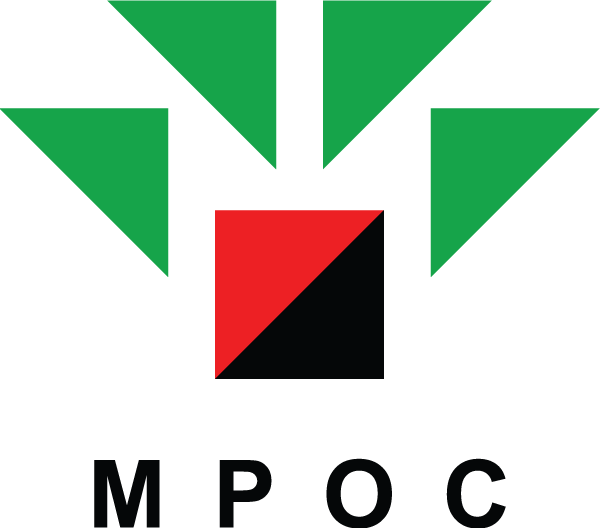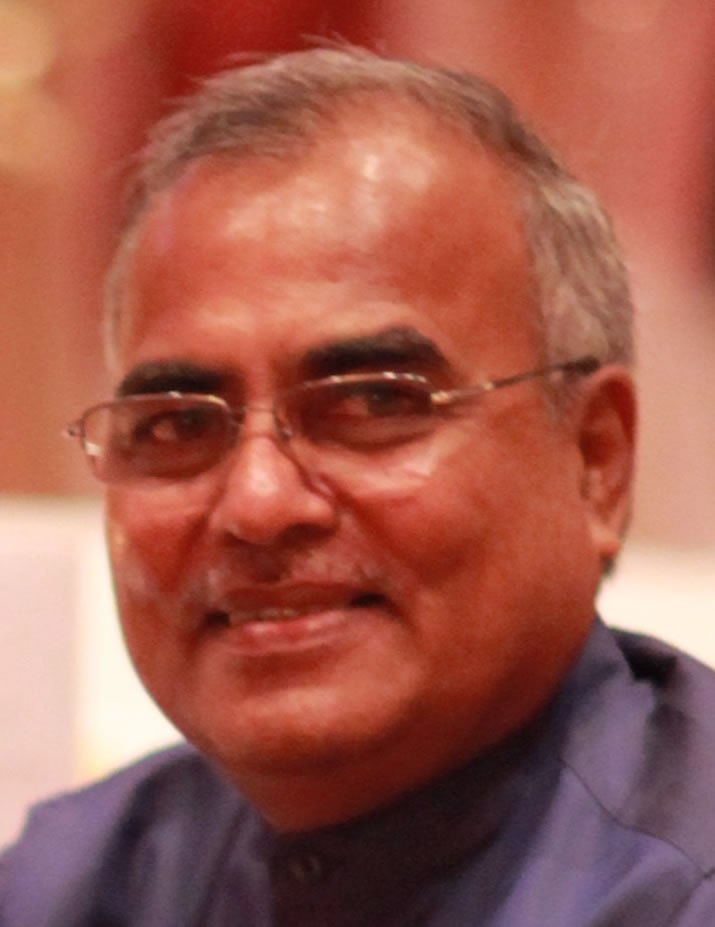
ORGANIZED BY:

Module 2: Renewable Energy, Climate Change and Food Security:
Composting for Methane Avoidance - A Practical Approach

Mr. Prathapan Pillai
Aged 68, is a Malaysian national and the Managing Director for BAR Formula. An entomologist by training, he began his career with Sabah Softwoods, an agroforestry company. He joined the Sabah Land Development Board during the ’79 pest outbreak, gaining first hand experience in aerial spraying, trunk injection, fungal and viral pest management techniques. The early testing of Bacillus thuringiensis with Abbot Laboratories and chitin inhibiting products for Oil Palm pests were key to reducing arsenicals and organochlorines usage. However, slow, sure and safe’ strategies were not a career booster in the 80s.
His effort to promote Biological Pest Management provided insights and recognition but were a commercial failure. In 1990, he was tasked as Project Manager by Sin Heap Lee-Marubeni to build the first Jack Nicklaus Signature Golf course in Malaysia. Hydroseeding with Bowie machinery, the import and onsite production of Tifway and Tifdwarf turf were pioneered on this project.
In 1993 he joined Sunway Bhd, the developer of Bandar Sunway and the Sunway Lagoon Theme Park. These urban projects allowed him to continue his research, develop and implement erosion control, soil enrichment and microbial solutions.
The 1995 Genting landslide created a real need for integrated environmental solutions. He represented Weyerhaeuser, a leader in reforestation and timber waste recycling, in developing and promoting SOIL GUARD® for slopes protection.Since 1998, he has an ongoing bioengineering operation in Genting Highlands for Resorts World Bhd.
In 2005, he began testing EFB and sludge as biodegradable options for revegetation. And stumbled on to the enormous problem of waste management in the Oil Palm industry. He has developed a composting process which can;
- utilise 100% of the POME and EFB generated by an Oil Palm Mill to make compost
- use up all available pond sludge, over time
- minimise land application acreages
- provide a stable nutrient basis for agronomists to quantify Inorganic reduction
- add Nitrifiers, P and K solubilisers, beneficial microbes
- complement biogas operations and methane avoidance
In 2008, he set set up BAR Formula Sdn. Bhd. followed by PT. BAR Formula (Indonesia) a year later, providing bioremediation and composting solutions to the oil palm sector. Since then, BAR Formula has built and operated 22 composting facilities across Malaysia and Indonesia.
EDUCATION
- University of Agricultural Sciences, Bangalore, India
- Bachelor of Agricultural Sciences
- Entomology and Plant Pathology Major
VIEW PROFILE
Methane is the byproduct of anaerobic decomposition. Avoidance means 'to prevent from happening'.
Malaysia and Indonesia each produce about 19.8 million and 43 million mt of Empty Fruit Bunches (EFB) annually. They each generate three times as much of the liquid Palm Oil Mill Effluent (POME). Current practices to manage EFB and POME contributes significantly to harmful greenhouse gas emissions as well as groundwater and riverine pollution.
Methane, a harmful greenhouse gas, is the byproduct of anaerobic decomposition of POME. Methane emission from POME ponds, is estimated to be more than 6.54 kg/mt Fresh Fruit Bunches (FFB) or 32.7 kg/mt Crude Palm Oil (CPO).
Aerobic composting of EFB with POME, ash and decanter cake avoids the emission of Methane. In addition, field application of the composted product completes the 'virtuous cycle' of production and soil replenishment. The nutrients recycled from the above account for a substantial value of the annual fertiliser budget.
However, corporate inertia, poor understanding of the composting process, field application, lack of accountability and short-sighted leadership continues to validate our industry's poor environment-friendly image.
Composting is complementary to biogas capture, a little-known fact. Methane capture for power generation makes financial sense. Flaring, however is best left to oil fields.
Composting is an aerobic effort to produce a stable, microbe rich soil conditioner and ameliorant. Significant benefits can be achieved by the conversion of EFB and consumption of POME to prevent soil and water pollution, reduction of inorganic fertiliser usage, and genuinely green badging our industry.
Tropical composting is an aerobic, gentle process focused on multiplying the indigenous microbial flora on biofilm coating the EFB. They multiply exponentially, using the nutrients in POME and evaporate the water fraction by respiration.
The adoption of a well thought out composting technology and strategy can greatly benefit the Oil Palm industry.
Malaysia and Indonesia each produce about 19.8 million and 43 million mt of Empty Fruit Bunches (EFB) annually. They each generate three times as much of the liquid Palm Oil Mill Effluent (POME). Current practices to manage EFB and POME contributes significantly to harmful greenhouse gas emissions as well as groundwater and riverine pollution.
Methane, a harmful greenhouse gas, is the byproduct of anaerobic decomposition of POME. Methane emission from POME ponds, is estimated to be more than 6.54 kg/mt Fresh Fruit Bunches (FFB) or 32.7 kg/mt Crude Palm Oil (CPO).
Aerobic composting of EFB with POME, ash and decanter cake avoids the emission of Methane. In addition, field application of the composted product completes the 'virtuous cycle' of production and soil replenishment. The nutrients recycled from the above account for a substantial value of the annual fertiliser budget.
However, corporate inertia, poor understanding of the composting process, field application, lack of accountability and short-sighted leadership continues to validate our industry's poor environment-friendly image.
Composting is complementary to biogas capture, a little-known fact. Methane capture for power generation makes financial sense. Flaring, however is best left to oil fields.
Composting is an aerobic effort to produce a stable, microbe rich soil conditioner and ameliorant. Significant benefits can be achieved by the conversion of EFB and consumption of POME to prevent soil and water pollution, reduction of inorganic fertiliser usage, and genuinely green badging our industry.
Tropical composting is an aerobic, gentle process focused on multiplying the indigenous microbial flora on biofilm coating the EFB. They multiply exponentially, using the nutrients in POME and evaporate the water fraction by respiration.
The adoption of a well thought out composting technology and strategy can greatly benefit the Oil Palm industry.
REGISTER OR LOGIN TO VIEW FULL REPORT
REGISTER OR LOGIN TO VIEW PRESENTATION SLIDES
Questions & Answers
Please login to post comments.




